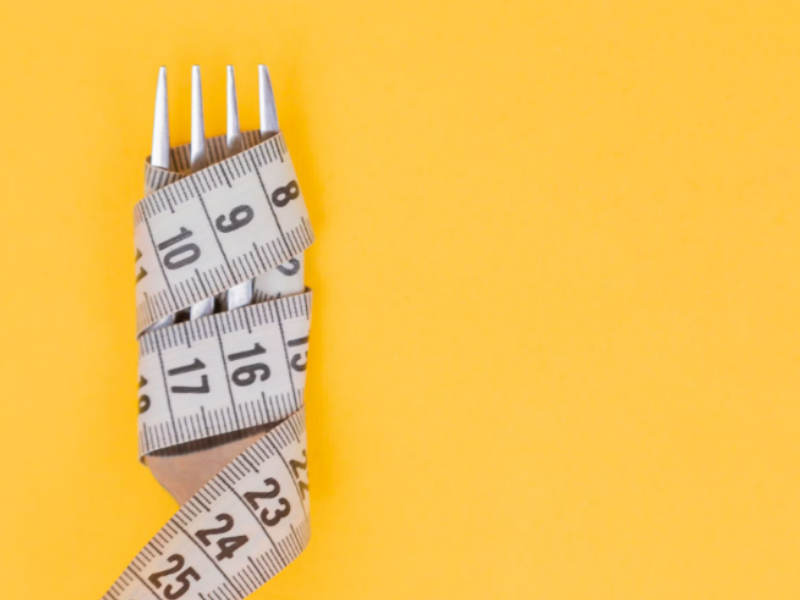


A 600-calorie diet might seem like a fast track to weight loss, but is it safe or sustainable? While such an approach can lead to rapid weight loss in the short term, it comes with serious risks and potential health consequences. In this article, we explore all there is to know about the 600-calorie diet, including its purpose, potential benefits, and serious risks. Additionally, we discuss sustainable alternatives for achieving a caloric deficit and long-term weight management while prioritizing your well-being and healthy eating.
What Is the 600-Calorie Diet?
The 600-calorie diet is a form of extreme low-calorie diet (LCD) where an individual consumes only 600 calories per day, significantly less than the average daily energy requirements. Typically used as a short-term approach to achieve rapid weight loss, this diet aims to create a dramatic caloric deficit, forcing the body to rely on its stored fat for energy. The 600-calorie diet often includes small, portion-controlled meals that prioritize nutrient-dense foods to provide essential vitamins, minerals, and protein while minimizing overall calorie intake.
While some individuals adopt this diet for weight loss, especially under medical supervision, it is not suitable for long-term use due to risks like nutrient deficiencies, muscle loss, and metabolic slowdown. Popular in extreme cases or as part of certain intermittent fasting regimens like the 5:2 diet, it remains highly controversial due to its potential negative impact on overall health and well-being [1].
How Much Weight Can You Lose on 600 Calories a Day?

Weight loss depends on several factors, including:
- Starting weight: Heavier individuals may lose weight more rapidly.
- Activity level: Increased physical activity can burn more calories.
- Metabolism: A slower metabolism may yield less dramatic results.
While it’s possible to lose pounds quickly on such a diet, the majority of the weight lost may come from water weight, muscle mass, and glycogen stores, rather than actual body fat.
Why People Consider a 600-Calorie Diet
People often turn to extreme diets like eating 600 calories a day to lose weight quickly. This approach may stem from:
- Desire for rapid results: Losing weight in a short period for an event or medical procedure.
- Obesity management: Some obese individuals may explore this option under medical supervision as part of a controlled plan [2].
- Trendy diets: Practices like alternate day fasting or extreme versions of intermittent fasting can promote severe caloric restriction [3].
While the caloric deficit created by such a diet can lead to weight loss, it comes at a cost to your overall health.
Why 600 Calories a Day Isn’t Enough for Most People
Consuming only 600 calories per day is significantly below the recommended daily intake for adults, which generally ranges from 2,000 to 2,500 calories, depending on factors such as age, sex, and activity level [4]. Such severe caloric restriction can lead to a multitude of health issues, including:
- Muscle Loss: The body may begin to break down muscle tissue for energy, leading to decreased strength and endurance.
- Weakened Organ Function: Vital organs require adequate energy to function properly; insufficient caloric intake can impair their performance.
- Metabolic Slowdown: The body may enter a conservation mode, slowing the metabolism to preserve energy, which can hinder weight loss efforts and lead to fatigue.
While very low-calorie diets (VLDCs) can result in rapid weight loss, they also carry risks such as loss of lean body mass and potential nutrient deficiencies. The human body thrives on balanced nutrition, and sustainable weight loss is best achieved through a combination of a well-rounded diet and regular physical activity [5].
The Risks of Eating Only 600 Calories a Day

1. Severe Caloric Restriction Can Harm Your Health
For most people, the recommended daily allowance for calorie intake ranges between 1,600–2,400 calories for women and 2,000–3,000 calories for men [6], depending on factors like age and activity level.
Consuming only 600 calories a day provides far less than what the body needs to function, leading to potential health problems such as:
- Nutrient Deficiencies: Consuming insufficient calories often results in inadequate intake of essential vitamins, minerals, and macronutrients, compromising overall health.
- Muscle Loss: When caloric intake is too low, the body may catabolize muscle tissue for energy, leading to decreased muscle mass and strength.
[7]. - Metabolic Slowdown: Prolonged severe calorie restriction can reduce resting metabolic rate, making it more challenging to maintain weight loss over time [8].
2. Mental and Emotional Health Concerns
Extreme diets can negatively affect mental health, leading to increased stress, irritability, and fatigue. They can also trigger or worsen eating disorders, such as anorexia or binge eating.
3. Risk of Serious Health Consequences
Extended caloric restriction can result in serious health consequences, including:
- Weak immune system
- Hormonal imbalances
- Heart problems
- Loss of bone density
- Organ damage [7]
Who Might Use a 600-Calorie Diet Safely?
A 600-calorie diet is not recommended for most people, but it may be utilized for short periods under strict medical supervision, particularly for:
- Obese individuals with a high starting weight who need rapid results to address urgent health risks.
- Cases where the individual’s overall health is closely monitored with supplements and specific meal plans.
Even in these scenarios, the diet is carefully planned to ensure the body receives essential nutrients to prevent complications.
Sustainable Alternatives to Extreme Dieting
Instead of relying on a 600-calorie diet, opt for healthier, more sustainable strategies like adopting a balanced diet rich in lean proteins, healthy fats, and whole grains. Incorporate regular exercise, including strength training and cardio, to burn calories and improve body composition.
Manage portion sizes, stay hydrated, and consider moderate approaches like the 16:8 form of intermittent fasting. Prioritizing sleep, managing stress, and focusing on long-term nutrition ensures safe and effective weight loss while supporting overall well-being.
- Balanced Diet: Focus on eating a variety of nutrient-rich foods like lean proteins, healthy fats, and whole grains.
- Portion Sizes: Manage portion sizes to reduce calorie intake without starving the body.
- Exercise: Combine cardio and strength training to burn calories and build muscle.
- Caloric Deficit: Create a moderate caloric deficit, such as consuming 500–1,000 fewer calories daily, for steady weight loss.
- Intermittent Fasting: A less extreme version, such as the 16:8 method, allows the body to rest while still providing enough energy for daily activities.
Conclusion
While a 600-calorie diet may produce rapid weight loss, it comes with substantial risks to overall health and well-being. Severe caloric restriction is neither sustainable nor healthy for most people and should only be considered under medical supervision for specific cases. Instead, adopting balanced eating habits, moderate caloric deficits, and regular exercise is the safest path to achieving long-term weight loss and maintaining optimal health. For more useful tips on diet and exercise, check out the JustFit app!
Can I build muscle while on a 600-calorie diet?
Can children or teenagers follow a 600-calorie diet?
Can I do intense exercise while eating 600 calories a day?
How long is it safe to stay on a 600-calorie diet?
Can I take supplements to offset the lack of nutrients?
Diabetes.co.uk. (n.d.). Very Low-Calorie Diets and Diabetes. Diabetes.co.uk. [online] Available at: https://www.diabetes.co.uk/diet/very-low-calorie-diet.html
Healthline. (n.d.). The Dangers of Extreme Calorie Restriction. Healthline. [online] Available at: https://www.healthline.com/nutrition/calorie-restriction-risks
Horne, B. D., Muhlestein, J. B., & Anderson, J. L. (2015). Health effects of intermittent fasting: hormesis or harm? A systematic review. The American Journal of Clinical Nutrition, 102(2), 464–470. [online] Available at: https://ajcn.nutrition.org/article/S0002-9165%2823%2912517-2/fulltext
News-Medical Editorial Team. (n.d.). The Health Effects of Severe Caloric Restriction. News-Medical.net. [online] Available at: https://www.news-medical.net/health/The-Health-Effects-of-Severe-Caloric-Restriction.aspx
NHS. (2023). Calorie Counting and Safe Weight Loss. National Health Service (NHS). [online] Available at: https://www.nhs.uk/better-health/lose-weight/calorie-counting/
Public Health Reviews Team. (2023). Effects of Prolonged Calorie Restriction on Metabolism. PMC Public Health Research, 18(2), 113–127. [online] Available at: https://pmc.ncbi.nlm.nih.gov/articles/PMC9036397/
The American Journal of Clinical Nutrition. Very-low-calorie diets with high and low protein content: impact on triiodothyronine, energy expenditure, and nitrogen balance. The American Journal of Clinical Nutrition. [online] Available at: https://ajcn.nutrition.org/article/S0002-9165(23)16227-7/abstract
U.S. Food and Drug Administration (FDA). (2018). Guidance for Industry: Nutrition and Supplement Facts Labels – Questions and Answers. [online] Available at: https://www.fda.gov/media/112972/download





